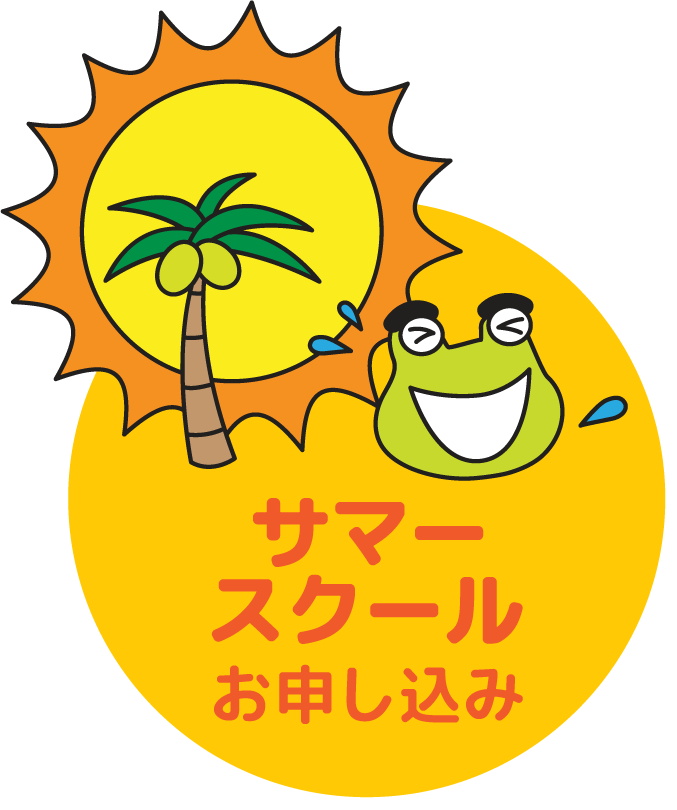子供が外国語を学ぶ理由|Reasons for Kids to Learn a Foreign Language
Reasons for Kids to Learn a Foreign Language
子供が英語(外国語)を学ぶ理由
目次
1) It grows kids’ brains:
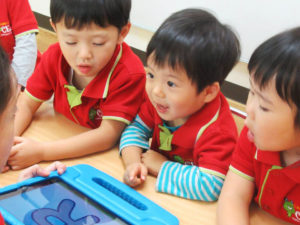
Studies have shown that people who are bilingual are better at tasks that require multi-tasking and attention focusing than monolinguals. Brain scans show they have more gray matter in the regions of their brain that are involved in executive function. The hypothesis is that the effort to constantly choose the right language at the right time provides a “mental gymnastics” for bilinguals which gives them extra practice in focusing their attention.
These benefits show up early – new research shows that even babies less than a year old who are exposed to multiple languages show different cognitive patterns in their brain compared to monolinguals. In fact, some researchers argue that the best way to have smarter kids is to expose them to multiple languages when they are young.
1) 子供の脳を成長させます:
研究によると、バイリンガルの人々は、モノリンガルよりもマルチタスクと注意の集中を必要とするタスクに優れています。 脳スキャンは、実行機能に関与している脳の領域により多くの灰白質があることを示しています。 仮説は、適切な言語を適切なタイミングで絶えず選択する努力が、バイリンガルに「精神体操」を提供し、注意を集中させるための追加の練習を提供するというものです。
これらの利点は早期に現れます。新しい研究によると、複数の言語にさらされている1歳未満の赤ちゃんでさえ、単一言語と比較して脳内で異なる認知パターンを示しています。 実際、一部の研究者は、賢い子供を持つための最良の方法は、若いときに複数の言語に子供をさらすことであると主張しています。
2)It boosts kids’ abilities in their native language:

Years ago people believed that learning a second language would confuse a child. Now, research shows that children who study a foreign language perform better in their native language than non-bilingual students, as measured on standardized tests. Other research has shown that children learning a second language start reading earlier, and the advantage increases the earlier they are exposed to the second language. In addition, bilingual children were better at identifying grammatically incorrect sentences than monolinguals. As Goethe said, “Those who know nothing of foreign languages know nothing of their own.”
2)母国語での子供の能力を高めます:
数年前、人々は第二言語を学ぶことは子供を混乱させるだろうと信じていました。 現在、調査によると、標準化されたテストで測定した場合、外国語を勉強する子供は、非バイリンガルの学生よりも母国語で優れたパフォーマンスを発揮します。 他の研究によると、第二言語を学ぶ子供たちは早く読み始め、第二言語にさらされるのが早いほど利点が増します。 さらに、バイリンガルの子供は、モノリンガルよりも文法的に正しくない文を識別するのに優れていました。 ゲーテが言ったように、「外国語を何も知らない人は、自分自身のことも何も知りません。」
3)It makes travel more fun:
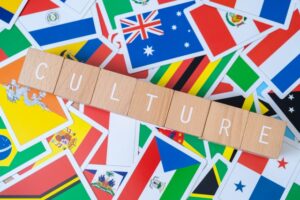
International travel is an amazing way to broaden children’s perspectives and help them experience the diversity and beauty of the world first hand. Being able to speak the language of the country they’re visiting unlocks the possibility of deeper connections and understanding. And most foreigners will appreciate the effort your children are making even if they aren’t fluent yet. Putting their language skills to use in “real life” can also be a motivation booster for kids.
For high school and university students, studying abroad can be a great way to deepen foreign language skills.
What language offers the most useful when it comes to travel? English of course! Travelers don’t need to speak the language of every country they visit, but being fluent in English makes it easier to pick up other languages. Even knowing basics like hello, please and thank you can go a long way to make a trip more magical.
3)旅行をもっと楽しくする:
海外旅行は、子供たちの視野を広げ、世界の多様性と美しさを直接体験するのに役立つ素晴らしい方法です。 彼らが訪問している国の言語を話すことができることは、より深いつながりと理解の可能性を解き放ちます。 そして、ほとんどの外国人は、子供がまだ流暢でなくても、あなたの子供が行っている努力を高く評価するでしょう。 彼らの言語スキルを「実生活」で使用することは、子供たちのモチベーションを高めることにもなります。
高校生や大学生にとって、留学は外国語のスキルを深めるのに最適な方法です。
旅行に関して最も役立つ言語は何ですか? もちろん英語! 旅行者は訪問するすべての国の言語を話す必要はありませんが、英語に堪能であると他の言語を習得しやすくなります。 こんにちはのような基本を知っていても、旅行をより魔法のようにするために長い道のりを行くことができます。
4)It boosts career opportunities:

Language education is critical for the workforce of the future and being bilingual can broaden career options. Many jobs in education, healthcare, social work, national security, translation, tourism, and international business require or favor candidates who are bilingual, resulting in more job opportunities for those who can speak a second language. And speaking a foreign language can make it easier to be eligible for jobs, internships and work-study programs in other countries – especially if you have critical skills.
4)キャリアの機会を後押しします:
外国語教育は将来の労働力にとって重要であり、バイリンガルであることはキャリアの選択肢を広げることができます。 教育、ヘルスケア、ソーシャルワーク、国家安全保障、翻訳、観光、および国際ビジネスの多くの仕事は、バイリンガルの候補者を必要とするか、または支持します。その結果、第二言語を話すことができる人々の雇用機会が増えます。 また、外国語を話すことで、他の国での就職、インターンシップ、就労学習プログラムの資格を得ることが容易になります。特に、重要なスキルを持っている場合はそうです。
5)It can increase out of the box thinking:
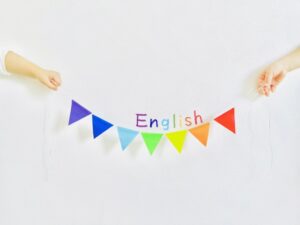
Much has been written about how many jobs in the future will be automated – with tasks requiring ingenuity and creativity being left to humans. How then to build creative thinking skills in children? One of the surprising ways is by learning a second language. Several studies have demonstrated greater creativity and problem solving skills amongst bilinguals.
Learning a foreign language helps children see the world through different lenses. The ability to consider multiple viewpoints to a problem is a cornerstone of creative problem solving.
5)それは箱から出して考えることを増やすことができます:
将来、いくつの仕事が自動化されるかについて多くのことが書かれています–創意工夫と創造性を必要とする仕事は、人間に任されています。 では、どのようにして子供たちに創造的な思考スキルを身につけるのでしょうか? 驚くべき方法の1つは、第二言語を学ぶことです。 いくつかの研究は、バイリンガルの間でより優れた創造性と問題解決スキルを示しています。
外国語を学ぶことは、子供たちがさまざまなレンズを通して世界を見るのに役立ちます。 問題に対する複数の視点を検討する能力は、創造的な問題解決の基礎です。
6) It’s fun!
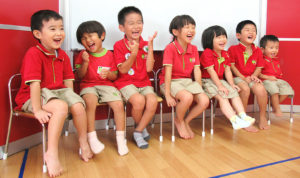
Sure, there’s a joy that comes from being able to speak to others in their native language – not to mention a sense of achievement. But part of the fun of learning a foreign language is discovering differences in how people look at the world. It’s fun to think about why dogs say “woof” in English, “wang wang” in Mandarin and “guau” in Spanish. What’s the right word? The dogs aren’t saying.
6)楽しいです!
確かに、達成感は言うまでもなく、母国語で他の人と話すことができることから来る喜びがあります。 しかし、外国語を学ぶ楽しみの一部は、人々が世界を見る方法の違いを発見することです。 犬が英語で「woof」、北京語で「wang wang」、スペイン語で「guau」と言う理由を考えるのは楽しいことです。 正しい言葉は何ですか? 犬は言っていません。






